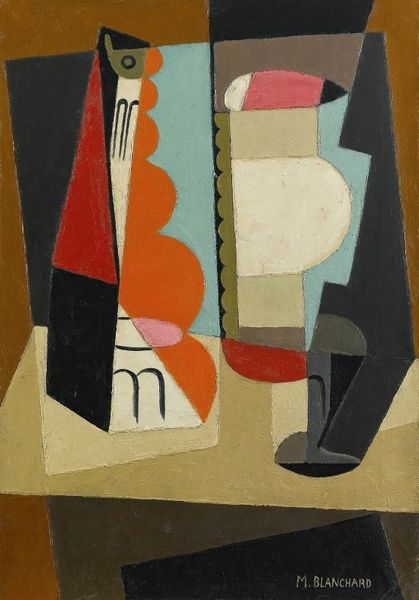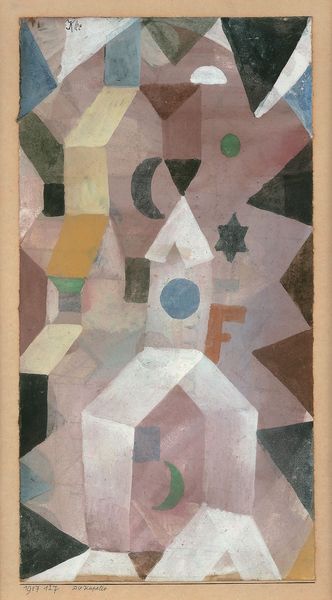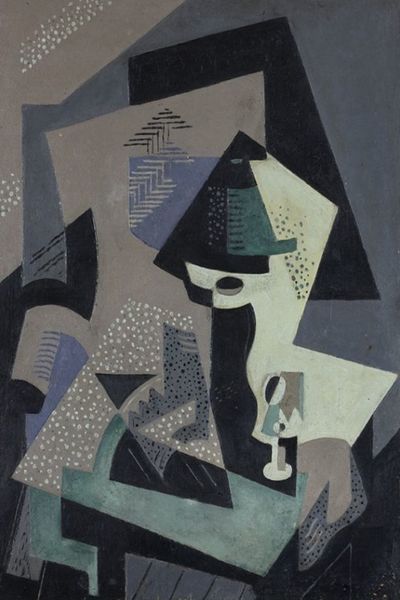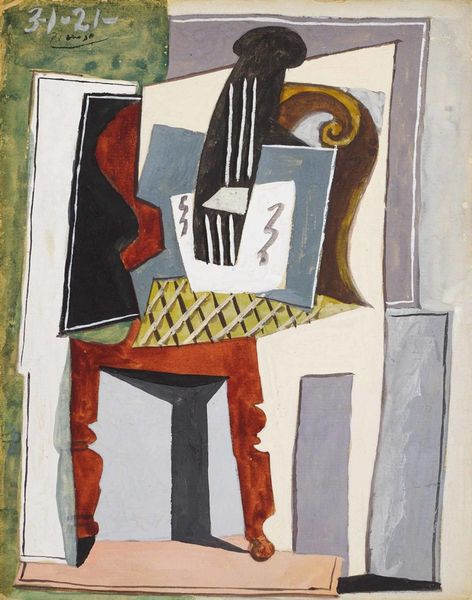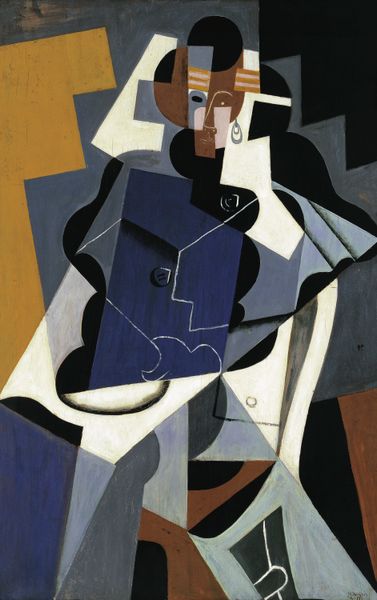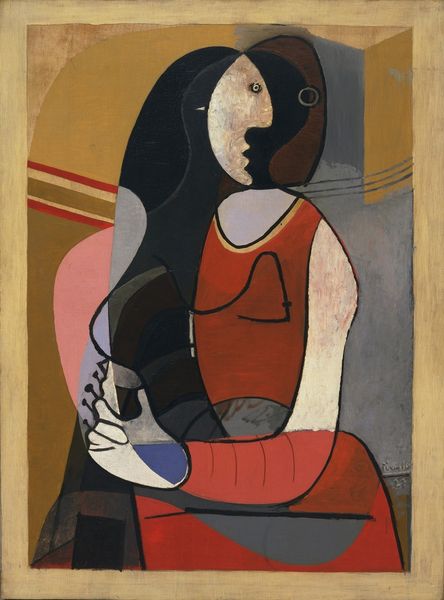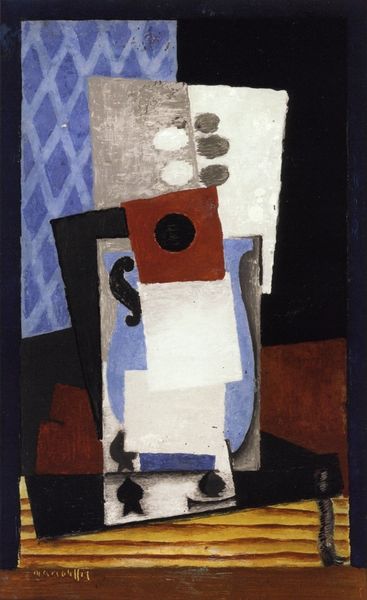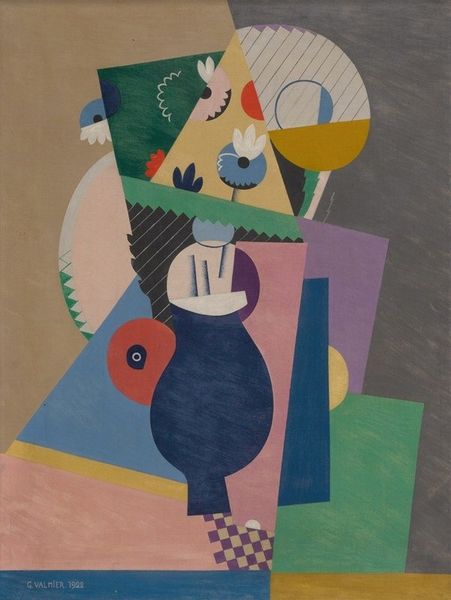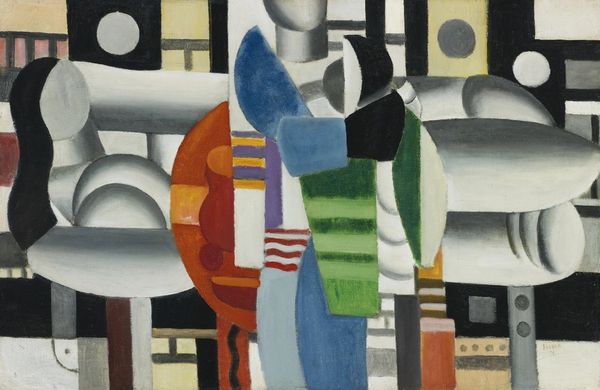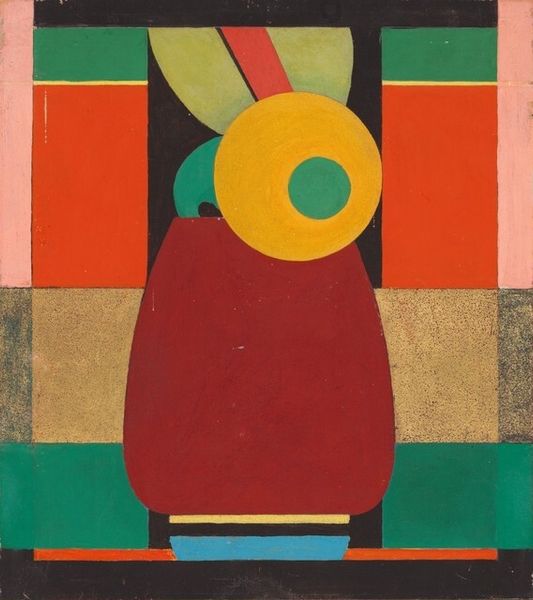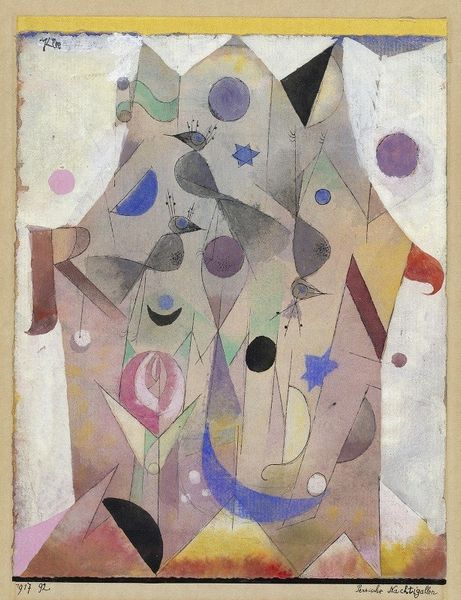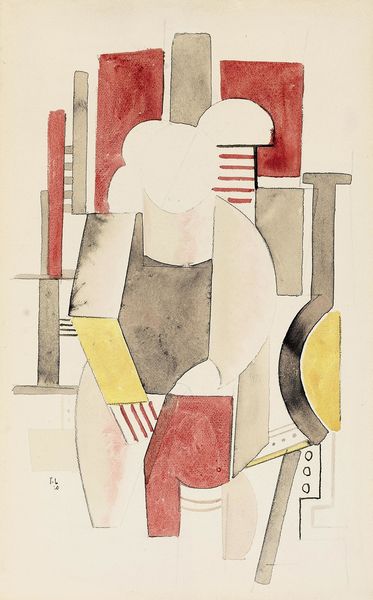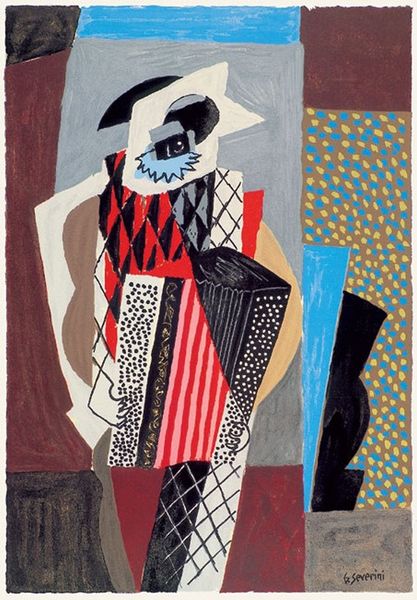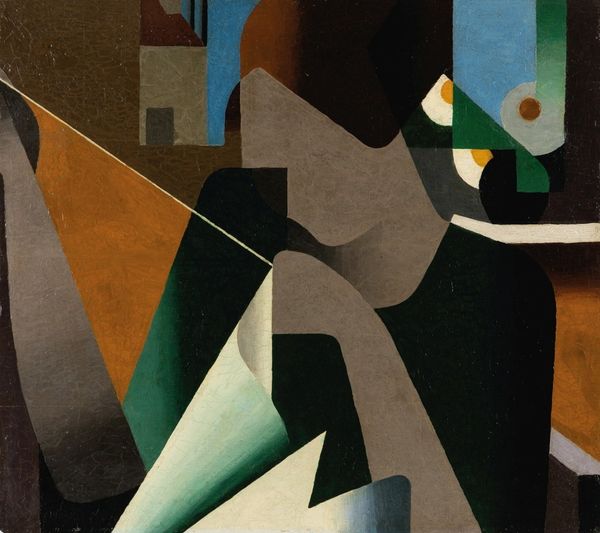
painting, oil-paint
#
cubism
#
painting
#
oil-paint
#
geometric
#
geometric-abstraction
#
abstraction
#
modernism
Dimensions: 61 × 50.8 cm (24 × 20 1/16 in.)
Copyright: Public Domain
Editor: This is "Provincetown," a 1916 oil painting by Marsden Hartley, housed here at the Art Institute of Chicago. The muted colors and geometric shapes create a strangely calming effect, almost like a deconstructed puzzle. What do you see when you look at this, beyond the obvious abstraction? Curator: Calming, yes, that's interesting... For me, "Provincetown" feels like a whispered secret. Hartley, often wrestling with inner turmoil, seemed to find solace in these abstracted landscapes. Look at how the forms, though geometric, hint at the familiar: the triangular shapes suggesting roofs, the curved lines evoking the harbor. It’s not a literal depiction, but rather an emotional echo of the place. What story does it whisper to you? Editor: I suppose the shapes, the stacked forms... it reminds me of a bustling port, but seen through a dream. It is indeed a place I know. How does this painting fit into Hartley’s larger body of work? Curator: Ah, good question! Hartley bounced between representation and abstraction throughout his career. "Provincetown" sits at an interesting crossroads. He’d been experimenting with total abstraction in his Berlin paintings just before this, influenced by Kandinsky and German Expressionism. Here, he pulls back slightly, grounding the abstraction in a recognizable place, a real location. Think of it as Hartley trying to find his own voice, synthesizing different influences to create something uniquely his. Editor: So, it's like he's using abstraction to capture the essence of Provincetown rather than its physical appearance? It's quite revealing now. Curator: Precisely. It's about capturing the feeling, the atmosphere, the very soul of the place. And maybe a little of his own soul as well, wouldn't you say? Editor: I would. I never thought about abstraction being such a deeply personal language, rather than an absence of something representational. It’s certainly a new, interesting language, in this context. Curator: Art is, after all, just like our own human experience and memory – a constant conversation between what's absent and present.
Comments
No comments
Be the first to comment and join the conversation on the ultimate creative platform.
